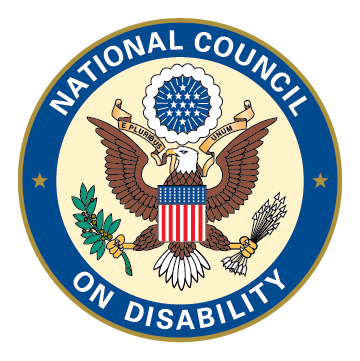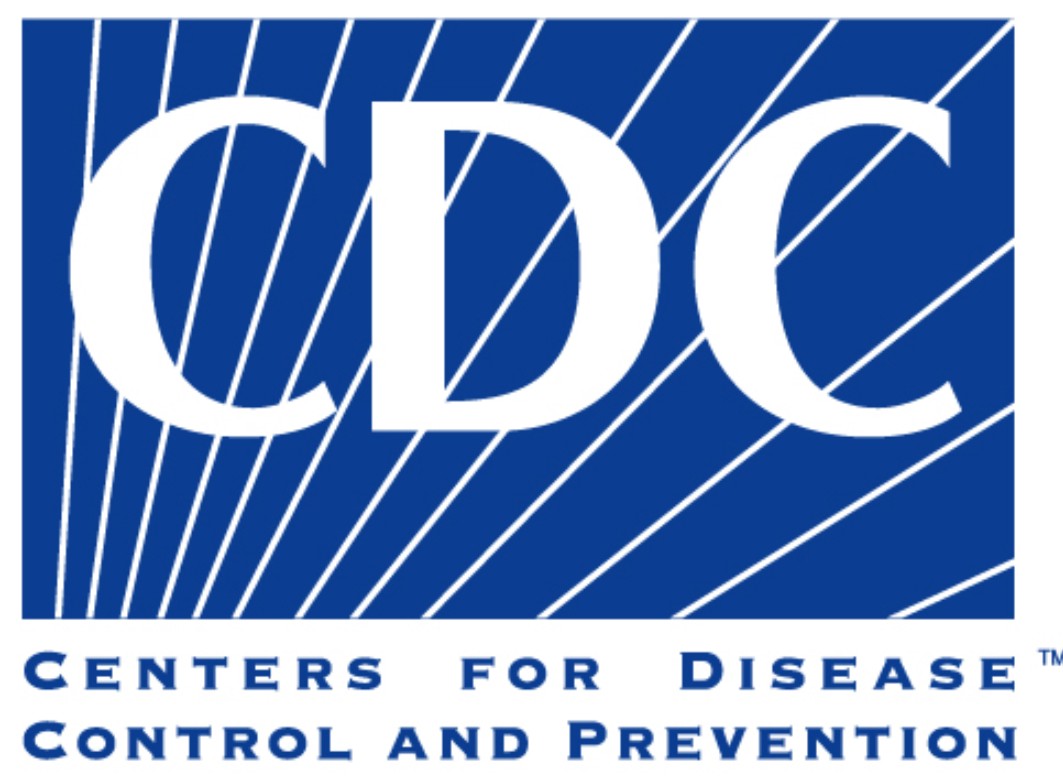 Editor's Note Editor's Note"Disability Policy News" will be on a break for the remainder of the August Congressional Recess. Please see below for important action steps you can take during this time.
On a personal note, this is the last issue of Disability Policy News to which I will contribute. My last day as the Policy Director at AUCD will by Friday, August 6th. It has been a privilege to represent and amplify your voices in Washington, DC. The conversations, questions and actions that have come from Disability Policy News have been a highlight of each of my weeks. One behind the scenes reality of DPN is that my Dyslexia has required my husband, David Rodgers, to copy edit each issue, making each of you a part of our Sundays for the past three-plus years. I am grateful for his help and that you have continued to read. I am looking forward to continuing to support AUCD and your work from my upcoming "outside" point of view.
AUCD is currently seeking its next policy director; I encourage you to consider the opportunity and to share it with those who may be interested.
Lead ON!
Rylin Rodgers
 Fiscal Year 2022 Fiscal Year 2022
On July 29th, the House passed H.R. 4502, the "minibus" Fiscal Year 2022 (FY 22) appropriation package to fund the Departments of Labor, Health and Human Services, Education, Agriculture, Energy, Interior, Veterans Affairs, Transportation, and Housing and Urban Development, as well as agencies pertaining to rural development, water development, financial services, general government, the environment, and military construction. The Senate has not yet acted on FY 22 funding.
Plain language:
- Congress is working on passing a budget.
What it means to you:
- Many AUCD programs get their funding from the federal appropriations process.
- Appropriations is the act of setting aside money for a specific program from the federal budget.
Bipartisan Infrastructure
The Senate voted 67-32 to advance a bipartisan infrastructure package on Wednesday, July 28th. Seventeen Republicans and all 50 Democrats voted in favor. The final legislative language for the package is still being written, but the legislation will cost around $1.2 trillion over eight years, about $550 billion of which is new federal spending, including major priorities for the disability community:
- $39 billion to modernize public transit, upgrade aging infrastructure & make stations accessible
- $65 billion to ensure access to high-speed internet for all
Plain language:
- Congress is working on a big bill that could improve our country's infrastructure.
- Infrastructure means the buildings, roads, bridges, power lines, and other things our country needs to work every day.
What it means to you:
- It is very important that all members of Congress are hearing from their constituents about how these investments will impact people and systems in your community.
Action steps:
- Read about what is included and how it will be paid for.
- Reach out to your Representative and both Senators and share how these investments will support people in your community.
 Budget Reconciliation Budget Reconciliation
Work continues on the budget reconciliation package that will be used to pass many parts of Presidents Biden's Jobs and Family Plan.
- Budget Reconciliation is a tool that makes legislation easier to pass in the Senate; a reconciliation bill only needs a simple majority (51) in the Senate.
The next few weeks will be the time that top-level numbers are set giving committees direction on creating the final package. The Better Care Better Jobs Act is the legislative language around the investment into Home and Community Based services (HCBS) that will be a part of the Budget Reconciliation process. In order to pass, all 50 Democratic Senators will need to support the package, as all Republican Senators have vowed they will not.
Action Steps:
- The most critical need is for education and advocacy around Home and Community Based Services. Members of Congress need to be hearing continuously how important the $400 billion dollar investment is to their constituents.
- It is fair to reach out to every member of Congress and share how important the Better Care Better Jobs Act (S.2210, H.R. 4231) is.
- The following 10 Democratic Senators have not yet supported the Better Jobs Better Care Act; contacting them should be a priority:
- Coons, DE
- Carper, DE
- Hickenlooper, CO
- Cortez Masto, NV
- Tester, MT
- Warner, VA
- Kelly, AZ
- Sinema, AZ
- Ossoff, GA
- Manchin, WV
- Messages for members of Congress:
- If they are supportive of the Better Jobs Better Care Act, thank them and share why it is so important to make sure the final package includes the $400 billion.
- If they are not yet supportive, reach out and share why HCBS is important. Offer to answer any questions as they consider becoming a co-sponsor.
Extra ways to make an impact:
- Coordinate state advocates to sign and send a joint letter to your congressional delegation in support of the Better Care Better Jobs Act
- A sample template to adapt can be found here
- Read and share an Opinion Piece on this bill by Liz Weintraub
- Read an analysis of the Better Care Better Jobs Act by Richard Frank and Jonathan Gruber that shows that passing the legislation would enable 3.2 million more people with disabilities to access home- and community-based services (HCBS). Use the data about the impact on your state as you educate members of Congress.
- Use social media to raise the importance of this legislation
- Use #BetterCareBetterJobs
- Share a personal story: Members of Congress and their staff from every state need to understand what HCBS mean to people in their state. AUCD is sharing these stories; we are looking to have stories to share from every state. Please send your story about HCBS to [email protected]
- Short is best (3-5 sentences)
- A picture helps
- Stories can come from people with disabilities, family members, allies and professionals working in these systems.
 Disabled Access Credit Expansion Act of 2021 Disabled Access Credit Expansion Act of 2021U.S. Senators Tammy Duckworth (D-IL), Mazie Hirono (D-HI), Bob Casey (D-PA), Richard Blumenthal (D-CT), Cory Booker (D-NJ), Amy Klobuchar (D-MN), Alex Padilla (D-CA) and Sherrod Brown (D-OH), and Representative Donald McEachin (D-VA-04) introduced the Disabled Access Credit Expansion Act of 2021 ( S. 2481, HR 4714). This legislation would make it easier for small businesses to comply with the Americans with Disabilities Act (ADA) and to become accessible for people with disabilities. The bill would double the maximum tax credit in the existing Disabled Access Credit (DAC) and allow more small businesses to receive it.
Plain language:
- This bill would help businesses be accessible.
What it means to you:
- 31 years after the passage of the ADA, many businesses still do not meet basic access standards. Investing in accessibility ensures access for all.
Action steps:
- Read the bills: S. 2481, HR 4714
- Encourage your members of Congress to join as cosponsors.
 National Council on Disability National Council on DisabilityThe National Council on Disability (NCD) is working on its next five-year strategic plan. The five-year agency strategic plan is intended to define the agency mission, long-term goals, strategies the agency has planned, and various approaches it plans to use to monitor its progress in addressing national problems and opportunities related to its mission. Stakeholders are encourage to review the current draft and provide feedback.
Plain language:
- NCD is a federal agency that gives advice to the President, Congress, and other federal agencies about disability. They are making a five-year plan and want input.
What it means to you:
- This is an opportunity to shape the goals of the agency for the next five years.
Action Steps:
- Read the draft plan on the Council's website
- Attend a virtual forum on its draft Strategic Plan on Tuesday, August 3, 1-3 p.m. The virtual forum will be hosted on Zoom and include video remote interpreting (VRI) and real-time captioning. More information is here.
 CDC Guidance CDC Guidance
On July 27th, the CDC updated COVID public health guidance in several important ways due to the spread of the Delta variant.
- Delta variant: A variant is a different ‘version' of something. A variant of COVID-19 is a different version of COVID-19. There are many variants, or ‘versions', of COVID-19 all over the world. The Delta variant is one version of COVID-19 that can spread easily. It is spreading in the United States and around the world.
The updated CDC guidance recommends:
- People who are immunocompromised or at increased risk for severe disease should wear masks and practice social distancing even when fully vaccinated.
- Immunocompromised means having a weakened immune system. A person with a weakened immune system can get sick more easily and have worse symptoms than others.
- All fully vaccinated people wear a mask in public indoor settings in areas of substantial or high transmission.
- Universal indoor masking for all teachers, staff, students, and visitors to K-12 schools, regardless of vaccination status.
Plain language:
- The science now shows that the Delta variant of COVID-19 has created new risk for getting sick from COVID-19. Because of how Delta is spreading, there are now new guidelines for wearing a mask for everyone, including people who got the vaccine.
What it means to you:
- • There is specific information for vaccinated people who are immunocompromised or at increased risk for severe disease, information that is critical for people with disabilities.
- The updated school and other guidelines can support advocates working to make school and public spaces safe and accessible for people whose disabilities put them at high risk.
Action steps:
- Read new guidance
- Use this map to track spread in your community
- Share with stakeholders in your community
- Use guidance to assistance in your education and advocacy for safe schools and communities.
- Two research articles were recently published regarding COVID risk and vaccines for children:
- Vaccines for Children: New Research (J Peds, 7/21) - Plans to Vaccine Children <= 12, Survey of US Parents
- Vaccines for Children: New Research (Pediatrics, 7/21) - Considerations Re: Covid Vaccinations of Children w DD
 Long COVID Long COVID
On Monday, July 26th, as part of the Biden-Harris administration's recognition of the 31st Anniversary of the Americans with Disabilities Act (ADA), the Administration released a package of guidance and resources to support individuals experiencing the long-term symptoms of COVID-19 or "Post-Acute Sequelae of SARS-CoV-2 infection (PASC)," known commonly as "long COVID." "Long COVID" can be a disability under the ADA, Section 504 of the Rehabilitation Act, and Section 1557 of the Affordable Care Act. New guidance provides information about where individuals can access resources and accommodations and clarifies the rights for health and educational services and supports:
Plain Language:
- Some people who have had COVID are newly disabled and may have protections under the ADA.
What it means to you:
- New tools can support people with Long COVID as they navigate disability rights and supports.
Action steps: Review and share the new resources:

Vaccine Distribution
Because of the elevated risk of serious illness and death due to COVID-19, vaccination is critically important for people with disabilities. However, we know that many people with disabilities and the direct care staff that support them continue to face significant barriers to getting vaccinated.
Plain language:
- Work is happening to make sure all people can get the COVID-19 vaccines. If you have been vaccinated there are now fewer restrictions.
What it means to you:
- Work is happening to make sure everyone can get their COVID-19 vaccine and feels safe doing so.
Action steps:
- Vaccine Resources and Information
- The National Center on Disability in Public Health has new resources to help support persons with disabilities, their family members, and the professionals who support them get vaccinated:
- Disability Information and Access Line (DIAL) is now available to help people with disabilities get vaccinated. The DIAL's trained staff is standing by to:
- Help find local vaccination sites
- Assist with making vaccination appointments
- Connect callers to local services - such as accessible transportation - to overcome barriers to vaccination
- Provide information and resources to answer questions and address concerns about the vaccines
- Connect callers to information and services that promote independent living and address fundamental needs, such as food, housing, and transportation.
- The Public Health Communications Collaborative has a new section of their "Answers to Tough Questions about Public Health" on the Delta and other variants of COVID-19 to support your vaccine efforts.
- The VaxFactsDDNY Project at the Rose F Kennedy UCEDD and the Strong Center for Developmental Disabilities developed a survey to learn about parent preferences for getting vaccines for their child with a disability. This information will be used to address inequity in vaccine information and access. There is a choice to complete the survey in English, Spanish, Korean, Chinese, Bengali, or ASL.
- HHS We Can Do This COVID-19 public education campaign has a Toolkit for People with Disabilities, which includes resources on COVID-19 vaccination for people with disabilities and the organizations and individuals who support them.
- Share #AUCDSleeveUP messaging on Twitter, Facebook, Instagram
- Check out the COVID-19 vaccine resources from the Center for Dignity in Healthcare for People with Disabilities, and consider sharing them with your state or local health departments.
 AUCD Policy Talk
Have a personal or professional connection to disability policy? Submit a blog post to AUCD Policy Talk!
 Tuesdays with Liz Contest Tuesdays with Liz Contest
Did you know that Liz has a new YouTube Channel? You can help spread her message by:
|
